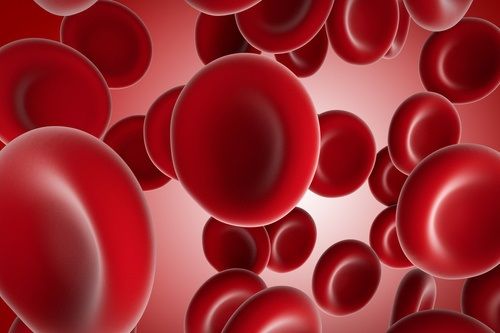Blood Test for Multiple Sclerosis May Be Near
Australian researchers are closing in on a blood test for multiple sclerosis.

A team of Australian researchers has identified the first blood biomarker for multiple sclerosis (MS), creating the possibility that doctors could soon determine a patient’s prognosis through a simple blood test.
The researchers, based at Macquarie University, in Sydney, wanted to gain a better understanding of why only half (50%) of relapsing-remitting multiple sclerosis (RRMS) patients progress to secondary progressive multiple sclerosis (SPMS). They hoped to find a mechanistic explanation for the change, and proposed that it might have something to do with inflammation. They decided to look specifically at the kynurenine pathway.
“As the kynurenine pathway (KP) of the tryptophan metabolism is highly inducible in inflammatory environments, we hypothesized that changes in the KP may be associated with the progressive switch in MS,” the authors wrote.
To study the question, the researchers followed more than 200 MS patients, broken up into three cohorts. Two of the cohorts were based in the United States; the third was part of a Tasmanian study. The latter cohort had samples collected back in 2003-2005, giving researchers the opportunity for longitudinal study.
The team found aberrant levels of two kynurenine pathway metabolites in the MS patients. They also found that serum kynurenine pathway signatures were highly reliable at determining MS subtypes, accurately diagnosing 91% of patients in one group and 85% in a second group.
“This is a significant discovery because it will facilitate the ability to quickly and simply make a prognosis of the three types of MS and will allow clinicians to adapt their treatment for MS patients more accurately and rapidly,” said Gilles Guillemin, PhD, professor of neurosciences at Macquarie, in a university press release.
The authors sounded one note of caution, that the KP profiles in the blood might not necessarily match the KP profile of the central nervous system. However, they cited a 2009 study which found the two KP profiles are similar, and the Macquarie team said their own data seemed to back up the notion that the two are linked.
If the findings of the study hold up, they could help MS patients avoid the slow and costly tests that are currently prescribed in order to help assess the disease.
The researchers are working with an Australian company, Dianti MS Proprietary Limited, to develop a new prognostic kit. If all goes well, the kit could be available for sale in some markets within the next two years.
The implications of the study could stretch beyond simply developing a blood test. As Guillemin noted, the data could help doctors develop personalized treatments for patients. However, it could also be utilized by pharmaceutical companies to develop entirely new therapies to fight MS. Moreover, the researchers believe the data could be beneficial in treating other diseases associated with inflammation and neurodegeneration, such as Alzheimer’s disease and Parkinson’s disease.
“The test itself relies on detecting compounds within a specific biochemical pathway that uses a chemical called tryptophan. Tryptophan is known to be involved in brain inflammation, and so by increasing our understanding of how our cells process tryptophan, we will be better able to identify its involvement in many types of neurodegenerative diseases,” Guillemin said.
The study, which is titled “Kynurenine pathway metabolomics predicts and provides mechanistic insight into multiple sclerosis progression,” was published online February 3 in Scientific Reports.
Related Coverage:
Potassium Channel Blocker Not Helpful in MS Fatigue